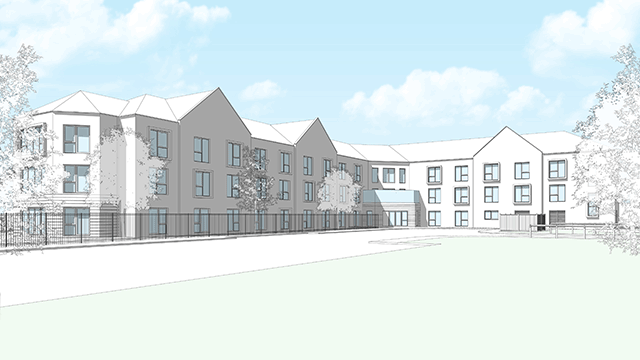COMMENT Having returned exhausted from COP26, I thought it would be good to check in on the final hours of the negotiations.
I started to watch the live coverage at about 2.30pm on Saturday afternoon – at 8pm I was still there, alongside the rest of the family who, like me, had become totally transfixed by the negotiating “huddles”, the country representations and the dotting of the i’s and crossing of the t’s.
It was, according to my 15-year-old, “better than watching a movie”. I’ll leave you to decide who should win the Oscar, but elevating the COP negotiations above Saturday movie night is definitely a win in my book.
But now the dust has settled and the wagons have rolled on, what will the lasting impact be and what does this mean for the built environment sector?
Bridging the credibility gap
The Glasgow Climate Pact was signed by 197 countries and the rule book for the Paris Agreement was finalised, an achievement not guaranteed at the outset. Addressing climate change is now a global aim. But analysis by Climate Action Tracker indicates that near-term governmental targets put us on track for 2.4°C of warming, highlighting a mismatch between national targets and the science. Governments will be looking to business to help bridge the credibility gap and implement the reductions in global greenhouse gas emissions required to keep within 1.5°C.
Real estate’s targets must reflect the scale and pace of change required and focus on near-term action, including making a meaningful contribution to cutting global emissions by 45% by 2030. The built environment must lobby for and support policies that are consistent with this. This includes planning requirements, building regulations and business energy use, but also means ensuring that other regulations are supportive.
Transparency remains a vital tool in holding stakeholders to account. Chancellor Rishi Sunak’s announcement that investors and listed firms will now need to publish a Net Zero Transition Plan was a welcome intervention. For commercial real estate, the long-awaited response to the BEIS consultation on mandatory disclosure for commercial buildings will fill a gaping hole in this regard.
There is no doubt that large global real estate investors understand the financial imperative to address climate change. The property sector has to learn to speak the language of finance and vice-versa, but one of the biggest questions in my mind is: where is all that investment going to go? As Stephanie Hyde from JLL observed, there is a massive deficit of net-zero investable buildings right now. If the real estate sector doesn’t step up to the challenge, that investment will go elsewhere.
Call the paramedics?
Amongst all the hubris of business commitments were numerous occupiers. I’d really like to see their demand for net-zero buildings clearly articulated and reflected in their property procurement and leases. Notably absent from high-level discussions was talk of skills. Where are all the climate change conversant asset managers, architects, contractors, surveyors, valuers, engineers and facilities managers? We are starting to get to grips with this challenge, but the sector needs to upskill at scale and pace.
The built environment sector stood up to be counted at COP – 42 businesses are now signed up to the World Green Building Council Net Zero Carbon Commitment, 28 property owners representing more than £375bn of real estate assets under management are signed up to the BBP Climate Commitment and $1.2tn of real estate AUM is part of the UNFCCC Race to Zero. We also have a Whole Life Carbon Roadmap for the sector, published by the UK Green Building Council. The sector appears to be clear on the direction of travel, and many stakeholders worked really hard to amplify the voice of the built environment on this world stage.
In the closing speech at COP26, Alok Sharma concluded: “We have kept 1.5 alive… But the pulse is weak.” I came away from COP26 feeling both inspired and energised. If it achieved one thing, it was the raising of the collective consciousness across all sectors of society. The real estate sector has an opportunity to deliver a different industry that can attract investment, make a real contribution to tackling climate change and facilitate a just transition. It’s a tall order for sure, but I don’t think we need the paramedics just yet. I’m certainly up for the challenge – are you?
Sarah Ratcliffe is chief executive of the Better Buildings Partnership











